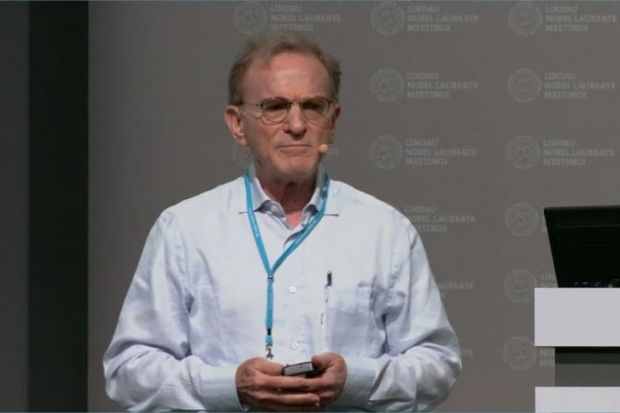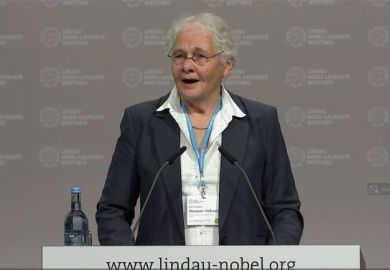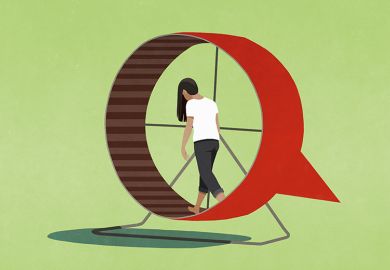A Nobel laureate has challenged the idea that scientific leadership is incompatible with family life, suggesting that if researchers want to improve their work-life balance they should spend less time on social media.
In a discussion of the postdoc recruitment crisis faced by some American research universities, Randy Schekman, who won the Nobel Prize in Physiology or Medicine in 2013, said the shortage of qualified candidates related to a perception that scientists must devote their evenings and weekends to their work to achieve success.
“Many young scholars look at mentors and decide ‘this is not the work-life balance that I want’,” the University of California, Berkeley professor told an audience at the annual Lindau Nobel Laureate Meeting.
However, the US molecular biologist said he did not subscribe to this type of long-hours culture, which he believed was unnecessary.
“I had children, and I was home to see them grow and mature – I would not have given that up for anything,” said Professor Schekman, who has been a Howard Hughes Medical Institute investigator based at Berkeley since 1991.
Campus resource: Good daily work habits for early career researchers
“If you organise your day in advance – and do not spend time posting picture of pets on the web – you can get things done,” the founding editor-in-chief of the eLife journals continued. “I see no barrier to having a successful career and a family life.”
The postdoc recruitment crisis was a “problem I’ve seen among my colleagues”, said Professor Schekman, who added that the increasing difficulty in obtaining visas for talented overseas researchers was another “political” element of the recruitment challenge.
Martin Chalfie, who won the Nobel Prize in Chemistry in 2008, said disruptions caused by the pandemic might have led more researchers to consider other industries beyond academia.
“We have just been through a horrible time when people were working remotely and it was hard to get back to the lab. Because of the whole Covid pandemic, and the frustrations of research, people are saying ‘Do I want a straight academic career?’” said the Columbia University biologist.
However, this presented an opportunity for early-career scientists seeking research posts, continued Professor Chalfie, who said he was among those seeking new postdocs.
“It should not be a negative. People have noticed fewer people are applying for postdocs, so it’s an opportunity if you want to do something good,” he said.
Register to continue
Why register?
- Registration is free and only takes a moment
- Once registered, you can read 3 articles a month
- Sign up for our newsletter
Subscribe
Or subscribe for unlimited access to:
- Unlimited access to news, views, insights & reviews
- Digital editions
- Digital access to THE’s university and college rankings analysis
Already registered or a current subscriber?








